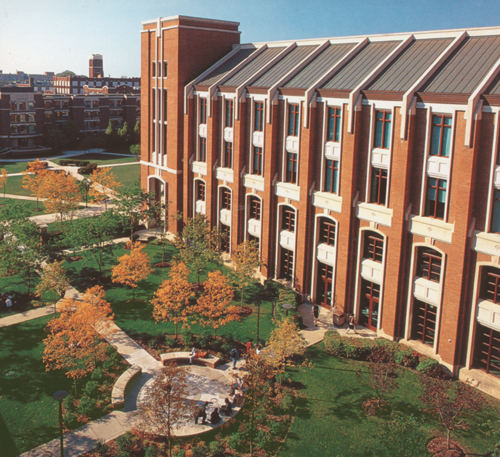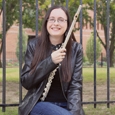
After graduating with a master’s degree, I moved back home, got married, and took a full-time office job to support my family. I knew that if I wanted to have a career as a professional musician, I would have to go back to school. The path to making that decision included many factors and a great deal of planning.
Assessing the Job Market
Once home in St. Louis, I assessed the performance and teaching opportunities. I spoke with old friends from college and contacted schools where I might find employment as a flute instructor. I also checked out venues where I might present concerts without incurring too much expense.
Assessing Your Playing
I came a long way in graduate school and was happy with my progress, but to make a career in music happen, I needed to assess my playing once again. I assessed what needed improvement and what I did well. I knew that I wanted to be an orchestral player but decided to make sure that I was a well-rounded musician so I was not limited to one area. By this point I realized that in order to fulfill my goals, I should go back to school for an intensive performance degree.
Picking a Degree
The DMA (Doctor of Musical Arts) is a performance degree with more of an academic focus in theory and history and includes intensive pedagogical research that can be worked into a final dissertation. The AD (Artist Diploma) and Performance Certificate programs are for musicians who primarily wish to be performers. The AD program focuses strictly on performance with private instruction and recitals making up the curriculum and the Performance Certificate will usually require a limited amount of additional coursework in electives. However, each school may have different requirements.
Researching Programs
I began researching where I might like to study. The most important factor was the teacher. I thought about professors I had liked at summer music festivals and masterclasses. I also considered the prestige of the institutions, location, and the possibility of receiving financial aid. I proceeded to email professors and schools asking many questions. I also made a chart of audition repertoire requirements for each program. I was working full-time so my practice time would be limited and I would do better if I could focus my attention on repertoire that I was familiar with and comfortable playing.
Setting a Budget
Consider the school’s tuition, living expenses, and your savings and income. For auditions take note of the cost of transportation, hotel, and food. Write grants to help with expenses; the Friends of Flutes Foundation offers financial assistance for flutists.
Application Process
Begin the application process as soon as the schools have been selected. Ask for references early in the fall so there is ample time to complete the forms. Send each person you ask for a reference your current resume so they are up to date with your activities and achievements. If a school requires a pre-screening audition, hire an accompanist as soon as possible. Prepare the recorded repertoire over several weeks so there are several options for submission. Investigate the price of a professional recording service versus renting a recording venue and using your own equipment.
Practice Strategy
I began my preparation last September. I realized that with my work responsibilities, practicing 90 minutes a day would be all I could do on a regular basis. I divided the 90 minutes into blocks of time in which I focused on a specific element. A typical practice day included 15 minutes on tone, 15 minutes on technique, 30 minutes on solo repertoire and 30 minutes on orchestral excerpts. My practice sessions focused on quality over quantity.
I selected tone and technique exercises that were specific to the repertoire I was working on. When I was too tired to physically play the flute, I used the time for score study and listening. Since I work in an office, I was able to put a Spotify playlist on a loop and immerse myself in the audition repertoire. This helped me learn the complete score and made a world of difference in my playing.
Small Goals
One of the best lessons I learned was to set small goals to achieve a long-term goal. For example, a small goal was to clean up the technique in the first five measures of the last movement of the Prokofiev Sonata for Flute and Piano, Op. 94. Another was to smooth out and tune the chromatic scale in the opening of the Brahms Symphony No. 4 flute solo. On the days I came home from work exhausted, having small goals to focus on kept my mental health intact. More often than not, I began to feel revitalized and practiced for longer than I had planned.
Mock Auditions
Often my husband would interrupt a practice session, with my repertoire list in hand, and ask me to play selections or the whole list on the spur of the moment. Other times I used my iPhone or Zoom recorders to create a mock audition setting. To this day I still get nervous when I see the red recording light.
Advice
Sometimes I sent these recordings to flute colleagues and took a few lessons when I had the time. The most valuable feedback often came from my husband, who is a tubist. While he understood the importance of nitpicking problem spots, he also kept me grounded in the importance of playing the music. It was a refreshing perspective that helped me the most to achieve success.
Performing
Perform in public as much as possible. If I had had more time, I would have performed more frequently at senior citizen and assisted living facilities.
Take a Break
Sometimes, the distinguishing factor between a good musician and a great musician is a person who knows when to give themselves a break for a few days. This does not mean you are not dedicated or that you don’t care. When you come back to the flute, you will better be prepared to work hard.
Success
Though it was difficult to follow my plan day in and day out, I am pleased to report that I will be pursuing a Post-Master’s Certificate in Performance at DePaul University this fall, studying with Mark Sparks.






